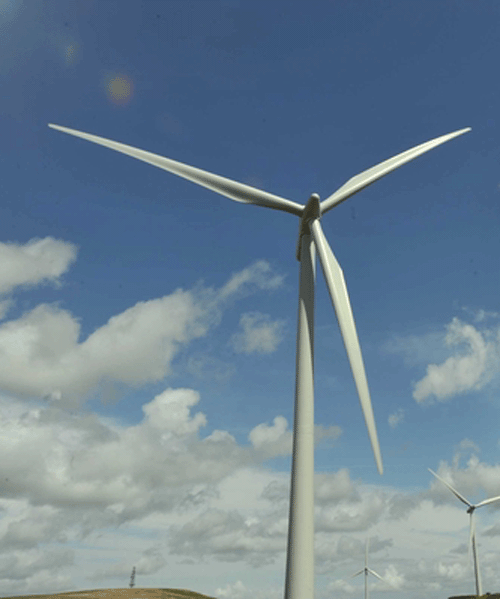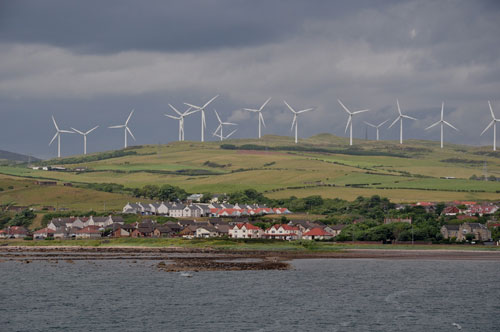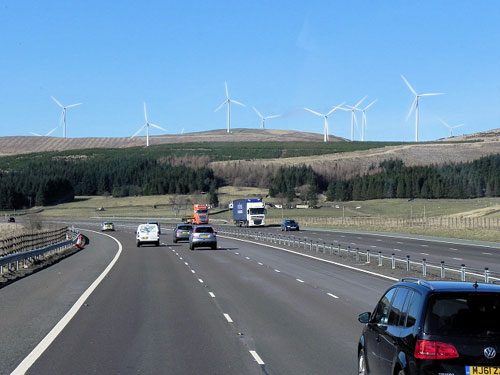A SCOTS estate agency has blasted the recent increase in wind turbines across the country.
Goldsmith and Co, an Edinburgh-based agency, have said they find it “challenging” finding plots of land free from masts, generators or pylons for their clients.
A recent report published by Scottish Natural Heritage (SNH) revealed that almost half of Scotland has a view of man-made turbines – a number which has more than doubled since 2008.

The agency is now warning that the country is at severe risk of allowing landowners to “overindustrialise” the landscape for the benefit of the few.
Richard Seaman, of Goldsmith and Co, raised his concerns after a gruelling search for a Highland property almost failed due to the number of visible turbines.
He said: “We regularly act for private clients seeking their dream sporting estate.
“When asked to find a wild tract of land free of the visible influence of telecom masts, pylons and wind turbines we thought little of the task.

“In reality, the brief proved to be one of our most challenging. The sad reality is that there is little of the Highlands that remains free of wind turbines.”
The search for a suitable £2m property for the wealthy client from the West Midlands took a total of eight months.
The firm eventually found the family a holding in Sutherland that ticked all the boxes.
The episode underlines just how much Scotland’s rural landscape has changed in recent decades.
According to SNH, the proportion of Scotland’s land area from which turbines are visible increased from 20% to 46% between 2008 and 2013.

When pylons, roads and other man-made structures were included, the number rocketed to 73%.
In January, Mr Seaman vented his frustration in a letter to the Scottish government, urging it not to endorse plans for 20 turbines at Strathdearn, near Inverness, which would be within three miles of the operational Farr wind farm.
He cited his difficulty in finding a pristine plot of land for his wealthy client.
He wrote: “Despite significant concerted efforts on our behalf we are still yet to find a suitable property due to exactly the type of developments that have been built at Farr and which are now proposed at Strathdearn.”
Overindustrialise
He added: “While I am fully supportive of renewable energy in the form of hydro or solar, Scotland is at severe risk of allowing some landowners/developers to overindustrialise the landscape for the benefit of the few while the wider community benefits from such developments are negligible.”
Last month, however, the wind farm was given the green light by the Scottish government, after concluding they would not have a significant impact on the landscape.
Helen McDade, head of policy for the John Muir Trust, said: “For some time, we have been highlighting the growing visual impact of industrial infrastructure across rural Scotland.
“The spread of wind turbines, for example, has been pervasive.”
A spokeswoman for the Scottish Government said: “Our policy on onshore wind farms aims to strike a careful balance between utilising Scotland’s significant renewable energy resources whilst protecting our finest scenic landscapes and natural heritage.
